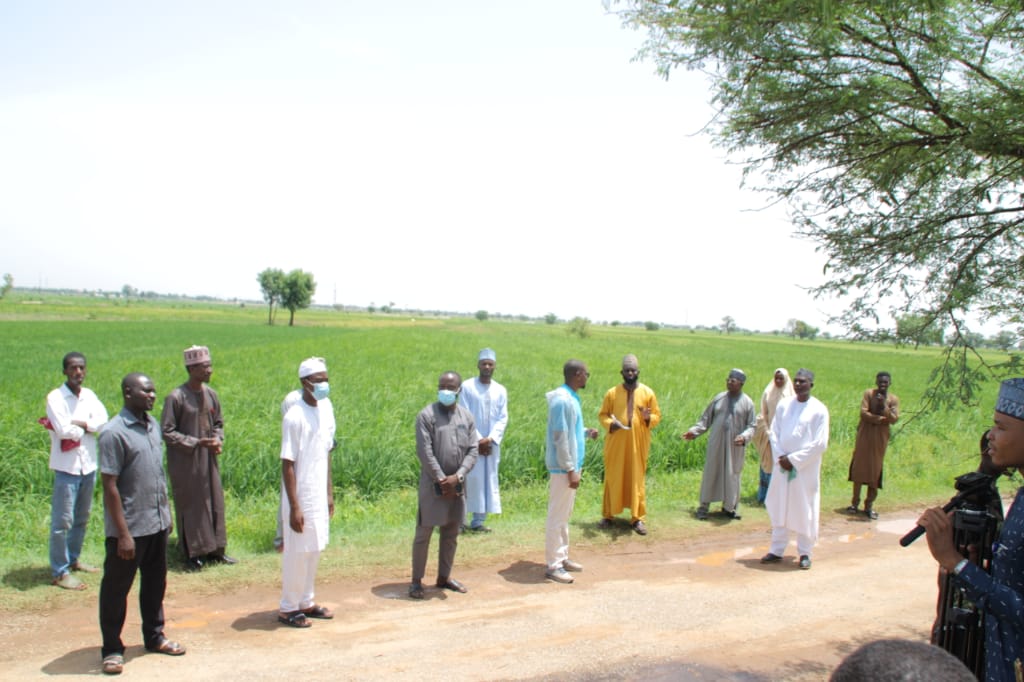Extension Services
Extension Services
Premium Agrochemicals Limited (PAL) is one of Nigeria’s prime con-glomerates, which has in¬tensified efforts in expanding its operations rapidly in the country’s fast growing fertilizer industry has been persistent¬ly adopting relevant Agricultural Extension Services for actualization of the Federal Government’s derive of attainment of food self sufficiency. Accordingly, as part of its corporate social responsibility, the management of Premium Agrochemicals Limited In¬ternational (PAL) organised from time to time series of activities like Farmers’ Field Day, which aims at championing the application of scientific research and new knowledge to agricultural practices through farmer education. The field of ‘extension’ now encompasses a wider range of communication and learning activities organized for rural people by the company from different disciplines, including Agronomists, Soil scientists, Agricultural input specialists, Mechanization, seeds and Agrochemicals, environment and Marketing among others.

The rationale behind these activities was to unveil the company’s milestones over the years, as well as showcase its major activities aimed fundamentally at supporting farmers and its teeming customers with Technical advice on agriculture, and also supplies them with the necessary inputs and services to support their agricultural production. It provides information to farmers and passes to the farmers new ideas developed by agricultural research stations. This project is been anchored in collaboration with the federal and states governments Agricultural Development Projects ADP’s, Farmer Groups, Research Institutes and Universities

In most developing countries, there has always been a move to privatize, outsource or regionalize extension and to demand that farmers pay for services, which in the past were provided free-of-charge by governmental agricultural advisory services. This is gradually becoming a reality for most Agricultural commodities with the emergence of the Anchor Borrower Program been supported by the central Bank of Nigeria. Under these circumstances, it is only natural that farmers who have to pay for services should have a voice when extension goals and means of delivery are discussed. Thus “supply driven” extension becomes “demand driven” or “market driven” advice. Agricultural advisors have not only to bring relevant knowledge and practical solutions to farmers; they must also ensure that farmers’ problems are brought to researchers, who can work towards feasible and economical solutions. Agricultural extension is becoming more pluralistic, with different actors concurrently using different approaches and extension methods. Hopefully, this pluralistic approach will lead to a generation of custom-made, environmentally-friendly and economically sustainable solutions based on farmers’ involvement in agricultural innovation systems.

In the past, private advisors could be paid only by wealthier, more prosperous farmers and by corporate farms. With the trend towards privatization, Umali-Deininger (1997) suggested that where the knowledge being communicated is embedded in, or closely associated with, market goods (e.g. tractors, hybrid seeds, fertilizers etc.).

Private, (individual or corporate) extension firms, often hire the best public extension services advisors, as they are able to pay more than the State and provide better working conditions. Sometimes, a public sector authority contracts a private party to join it in a public-private partnership (PPP) consortium. In the light of the above Premium Agrochemicals Limited engage the services of a professional, a member of its advisory board and Professor of Agricultural Economics and Extension, Professor M T Yakasai with to drive this project.

Several activities such as the Green and Brown field Days were organized with full participation of Community leaders, Farmer Groups, Commodity associations, Agricultural Development Agencies, Research Scientists and Academia.

